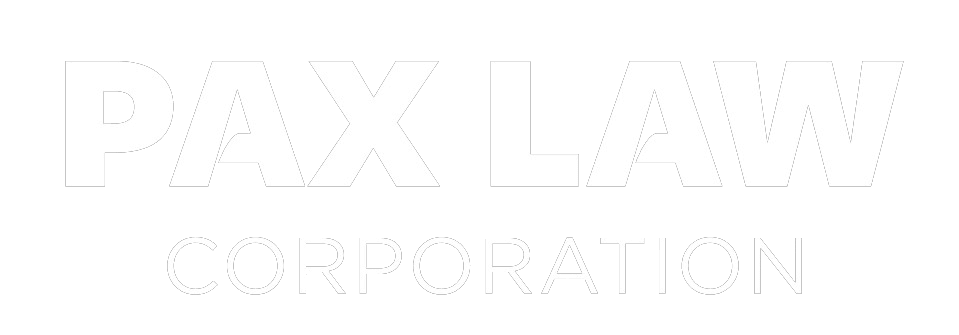Administering a will in British Columbia involves several key steps that need to be followed to ensure that the deceased’s wishes are carried out according to the law. Here’s a general overview of the process: first, the executor named in the will must obtain a death certificate and locate the original will, as this document is crucial for all following actions. Next, the executor should notify all beneficiaries and heirs, which ensures transparency and helps prevent any potential disputes. It’s also important for the executor to assess the estate’s assets and liabilities, leading to the appropriate filing of documents in court for probate. Probate is a legal process that verifies the will’s authenticity and grants the executor authority to manage the estate. Following this, the executor must pay off any debts and taxes owed by the estate before distributing the remaining assets as specified in the will. Throughout this journey, it is advisable for the executor to keep detailed records and maintain clear communication with beneficiaries to navigate the complexities of estate administration effectively.
Table of Contents
- Locate the Will
- Determine if Probate is Necessary
- Apply for Probate
- Key Documents to Prepare
- Notification
- Inventory and Valuation
- Settle Debts and Taxes
- Distribute Assets
- Keep Records
- Conclusion
- Frequently Asked Questions about Administering a Will in British Columbia
1. Locate the Will
The first step is to locate the most recent version of the will. This may be stored with a lawyer, in a safety deposit box, or at home. It’s crucial to ensure that the document is authentic, as any discrepancies could lead to legal disputes or issues in executing the deceased’s wishes. Additionally, it is advisable to inform close family members or trusted friends about the location of the will, as they can assist in the retrieval process if necessary. Searching for the will can sometimes require thorough investigation, including checking old files, legal correspondence, and even contacting financial institutions where important documents might be kept. Keeping a clear record of where the document is stored will save time and potential confusion in the future.
2. Determine if Probate is Necessary
Not all estates require probate. If the deceased solely owned real estate or significant assets, or if there are disputes among beneficiaries regarding the distribution of those assets, the will typically needs to be probated to validate its authenticity and ensure that the deceased’s wishes are honored. Probate serves as a legal process that provides a framework for asset distribution, but it can be quite lengthy and costly. However, if the estate is relatively small, with minimal assets or few beneficiaries, alternatives to probate may be available, such as using simplified probate procedures, relying on transfer-on-death designations, or utilizing living trusts, which may streamline the process and reduce the burden on heirs during a challenging time.
3. Apply for Probate
If probate is necessary, the executor must file an application in the Supreme Court of British Columbia. This includes submitting the original will, a detailed probate application form, and a comprehensive listing of the deceased’s assets and debts, which should accurately reflect the value of each item to facilitate a fair distribution among beneficiaries. A death certificate is also required, serving as an official confirmation of the individual’s passing. Additionally, the executor may need to provide information regarding any outstanding taxes and financial obligations, as these can impact the estate’s administration process. The entire procedure can often be complex, requiring careful attention to ensure compliance with legal standards and timelines. Proper guidance from legal professionals can significantly ease the responsibilities placed on the executor during this challenging time.
Key Documents to Prepare:
- Application for Grant of Probate
- The deceased’s will
- Affidavit of the executor
- Death certificate
- Inventory of the estate
4. Notification
Once probate is granted, the executor must notify beneficiaries and potential creditors of the estate, ensuring that all parties are aware of the proceedings. This notification process is crucial as it allows beneficiaries to claim their rightful shares and informs creditors of their opportunity to make claims against the estate. In many cases, this may involve publishing a notice in a local newspaper, which serves to reach any unknown creditors and the wider community. Additionally, the executor may also consider sending direct notices to known beneficiaries via mail, outlining their entitlements and the timeline for the estate settlement process. This comprehensive approach helps to facilitate transparency and fairness in the management of the estate, minimizing disputes and promoting a smoother transition for all involved.
5. Inventory and Valuation
The executor needs to conduct a thorough inventory of all estate assets and have them valued appropriately. This crucial process involves not only a comprehensive list of real estate holdings, such as homes, land, and rental properties, but also a detailed assessment of bank accounts, which may include checking and savings accounts, certificates of deposit, and any other financial assets. Additionally, the executor must carefully account for personal belongings, such as jewelry, art collections, heirlooms, and furniture, ensuring that significant sentimental items are noted. Furthermore, investments, encompassing stocks, bonds, mutual funds, and retirement accounts, must be evaluated to reflect their current market value. This meticulous documentation is essential for settling the estate effectively and ensuring a fair distribution of assets among beneficiaries.
6. Settle Debts and Taxes
Before distributing the assets, the executor must pay any outstanding debts and taxes owed by the deceased. This process may involve filing the deceased’s final tax return, which can be a complicated task requiring a thorough review of all financial records and documentation. It is essential for the executor to gather relevant information regarding any liabilities, such as loans, credit card debts, and medical expenses incurred before the person’s death. Additionally, they must ensure that all estate taxes are calculated accurately and paid timely to avoid penalties. Once these obligations are met, the executor can proceed with the fair distribution of the remaining assets among the beneficiaries, which may include personal belongings, property, and other financial assets, thus ensuring that the deceased’s final wishes are honored respectfully and legally.
7. Distribute Assets
After all debts and obligations have been settled, ensuring that every financial responsibility has been meticulously accounted for, the executor can finally proceed to distribute the remaining assets to beneficiaries according to the instructions outlined in the will. This important step requires the executor to carefully review each provision specified in the document, taking the time to understand the intentions of the deceased and to communicate effectively with the beneficiaries. By doing so, the executor not only honors the wishes of the testator, but also helps to prevent any potential disputes or misunderstandings among family members. Once the distribution process begins, it is essential for the executor to maintain transparency and record-keeping to ensure that all parties involved are aware of the proceedings and the equitable allocation of the assets.
8. Keep Records
Throughout this process, it’s essential for the executor to maintain detailed records of all transactions and communications, as these documents serve not only as a reference point but also as a safeguard against any potential misunderstandings. Having an organized and comprehensive system of documentation is crucial in case disputes arise in the future. Furthermore, this meticulous record-keeping can provide clarity and reassurance to all parties involved, highlighting the executor’s commitment to transparency and fairness in managing the deceased’s estate. It can also streamline the process of settling any disagreements that may occur, thereby ensuring that all actions taken are fully justified and traceable. In an environment where emotions can run high, thorough documentation helps establish trust and confidence, making the entire process smoother and more efficient for everyone concerned.
Conclusion
Administering a will in British Columbia requires careful attention to legal requirements and timelines, as the judicial process is often intricate and multifaceted. Executors should consider seeking assistance from lawyers or estate professionals to navigate this complex process effectively, ensuring that all necessary steps are taken to meet regulatory obligations. Additionally, it is crucial to gather all relevant documentation, including the deceased’s financial records and beneficiaries’ information, to facilitate a smooth transition. Properly addressing these details not only helps to prevent disputes among heirs but also promotes a timely resolution of the estate, allowing loved ones to receive their inheritances without unnecessary delay. Furthermore, understanding the tax implications and potential liabilities that may arise during the administration process can save executors from future complications.
Frequently Asked Questions about Administering a Will in British Columbia
1. What is the first step in administering a will in British Columbia?
Answer: The first step is to locate the most recent version of the will, which may be stored with a lawyer, in a safety deposit box, or at home. Ensuring the document’s authenticity is crucial.
2. Is probate always necessary for all estates in British Columbia?
Answer: No, not all estates require probate. If the deceased solely owned real estate or significant assets, or if there are disputes among beneficiaries, probate is typically necessary. For small estates, alternatives to probate may be available.
3. How do I apply for probate in British Columbia?
Answer: To apply for probate, the executor must file an application in the Supreme Court of British Columbia, including the original will, a probate application form, a death certificate, and an inventory of the deceased’s assets and debts.
4. What key documents are needed to apply for a grant of probate?
Answer: The key documents required include the application for grant of probate, the deceased’s will, the affidavit of the executor, the death certificate, and an inventory of the estate.
5. What notification steps must an executor take after probate is granted?
Answer: After probate is granted, the executor must notify beneficiaries and potential creditors, which may involve publishing a notice in a local newspaper.
6. How is the inventory and valuation of estate assets conducted?
Answer: The executor must conduct an inventory of all estate assets and have them valued, including real estate, bank accounts, personal belongings, and investments.
7. What debts and taxes need to be settled before distributing assets?
Answer: The executor must pay any outstanding debts and taxes owed by the deceased, which may include filing the deceased’s final tax return before assets can be distributed to beneficiaries.
8. How are assets distributed to beneficiaries after debts are settled?
Answer: Once all debts and obligations have been settled, the executor can distribute the remaining assets to beneficiaries according to the instructions outlined in the will.
9. Why is it important for executors to keep detailed records during the administration process?
Answer: It is essential for executors to maintain detailed records of all transactions and communications to ensure transparency and to have documentation available in case of future disputes.
10. Should an executor seek professional assistance in administering a will?
Answer: Yes, executors are advised to consider seeking assistance from lawyers or estate professionals to effectively navigate the complex process of administering a will in British Columbia.
Consult with Pax Law for expert guidance on administering a will in British Columbia and navigating the complexities of estate administration.




0 Comments